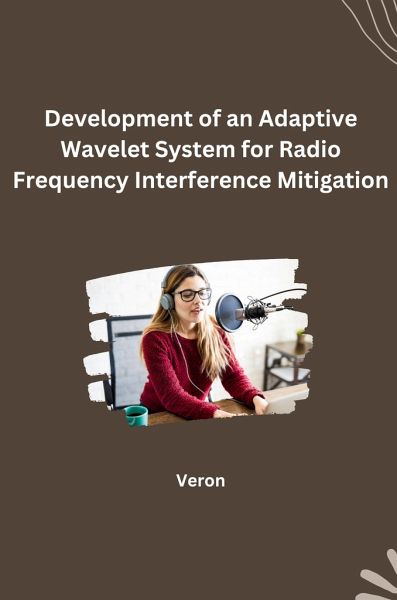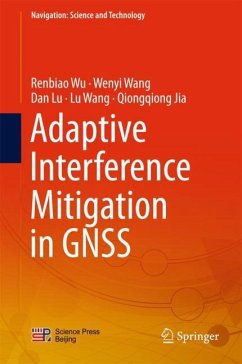
Development of an Adaptive Wavelet System for Radio Frequency Interference Mitigation
Versandkostenfrei!
Versandfertig in 6-10 Tagen
26,49 €
inkl. MwSt.

PAYBACK Punkte
0 °P sammeln!
Radio frequency (RF) interference is a persistent foe, corrupting data and disrupting communication. Traditional methods fight a blunt battle, but a new weapon is emerging: the adaptive wavelet system. This innovative approach takes signal rescue to the next level.Unlike static filters, adaptive wavelet systems are like intelligent shields. They analyze incoming signals in real-time, identifying and adapting to specific types of interference. Imagine a shield that adjusts its density based on incoming projectiles - the adaptive wavelet system tailors its approach for optimal noise removal.This...
Radio frequency (RF) interference is a persistent foe, corrupting data and disrupting communication. Traditional methods fight a blunt battle, but a new weapon is emerging: the adaptive wavelet system. This innovative approach takes signal rescue to the next level.Unlike static filters, adaptive wavelet systems are like intelligent shields. They analyze incoming signals in real-time, identifying and adapting to specific types of interference. Imagine a shield that adjusts its density based on incoming projectiles - the adaptive wavelet system tailors its approach for optimal noise removal.This adaptability unlocks several benefits. The system can tackle diverse interference sources, from narrowband jamming to broad environmental noise. Additionally, it can dynamically adjust its filtering based on signal characteristics, ensuring optimal extraction of the desired information.The development of adaptive wavelet systems holds immense promise. It can revolutionize communication systems, enabling cleaner data transmission in congested RF environments. This technology can also benefit medical imaging, leading to clearer diagnoses by removing noise artifacts. As research progresses, adaptive wavelet systems have the potential to become a cornerstone of robust and reliable communication across various fields














